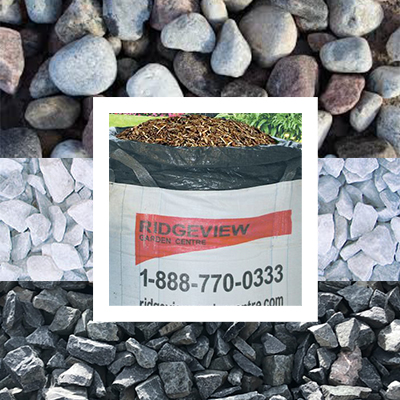To Mulch or Not to Mulch?

To mulch or not to mulch…. That is the question. Or maybe it isn’t, maybe you are thinking of adding decorative stone to your landscape. Each has its inherent strengths, so which one is right for your project? There are numerous benefits to applying mulch or rock in your garden. Familiarize yourself with both by reading this week’s blog.
Mulch
The most common type of compost that is used in garden soil. Mulch is most frequently made of either pine or cedar and dyed a variety of colours such as red, black, and dark brown to add pop of colour to your landscape.
Less Water
One of the main benefits of using mulch is that you no longer have to water as often. A foot of mulch can hold up to three inches of water meaning a good soaking can sustain surrounding plants on the residual moisture. This residual water will make the soil hospitable for nutrient proliferation. The nutritional value increases once the decomposing mulch passes its minerals to the soil.
Prevent Weeds
Mulch is helpful in stamping out weeds proliferation. Both inorganic and organic mulches can help prevent the growth of unwanted weeds and grass.
Rock
Rock mulch is one of the most common types of inorganic mulch. This will include river rock, pea gravel, granite, quartz, and lava rock. The gravel’s size can range from a pea to the size of a golf ball
Does Not Decompose
One of the best things about using rock is that it doesn’t decompose. Once in place it’s there for the long run, without having to purchase another batch to replace. Since there’s no decomposition it also reduces opportunistic bugs looking for a new home.
Minimal Maintenance
Since it doesn’t decompose it doesn’t require reapplication as often as organic mulch and its appearance will pretty well always stay the same. It’s also not easily be displaced by pets or blown away by strong winds. Rock mulch can’t easily be destroyed or trampled on, so you don’t have to worry about anything at all except occasionally blowing away loose leaves and debris.

